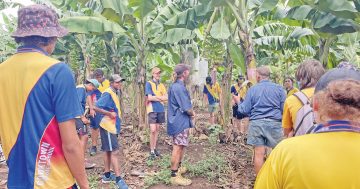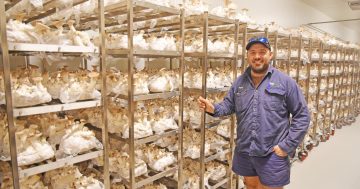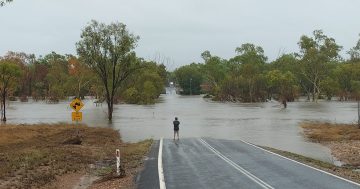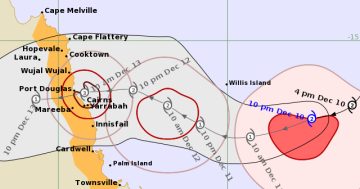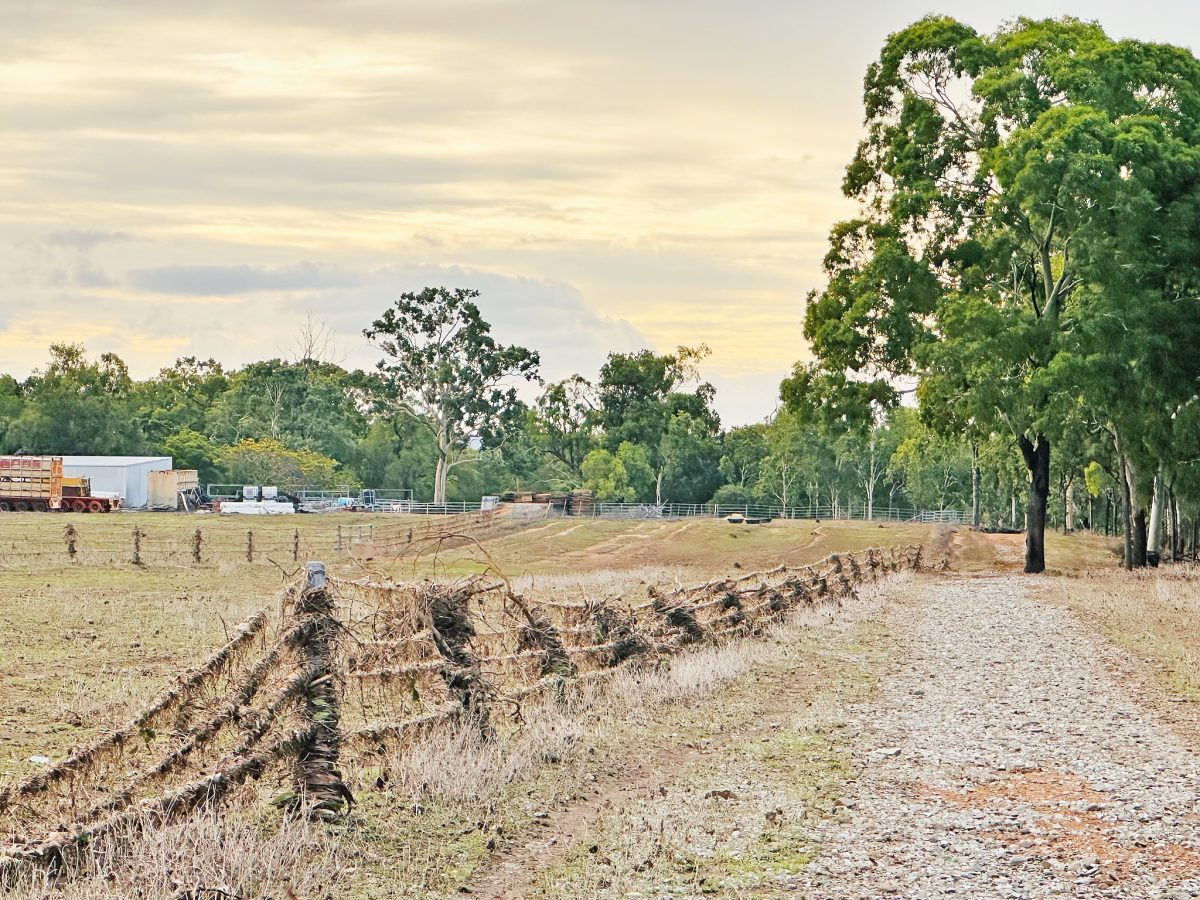
Karlene and Roy Shephard haven’t been able to get in the air to assess the full extent of the damage at Crocodile Station, but they said the flooding was the worst they had seen in two decades at the Laura/Lakeland property.
Lakeland and Laura district cattle producers are picking up the pieces after heavy rainfall caused carnage for graziers.
The district is not considered to be a high rainfall area compared to other parts of the Cape, and some recorded up to 720mm of rain after Cyclone Jasper weakened into a low-pressure system, drenching river catchments and cattle paddocks across the lower Peninsula.
Lakeland grazier Joy Marriott said she had more than 700mm of constant rain over four days, combined with cool weather which killed some cattle from exposure.
“We lost 20 or more head that I know of but there could be more fatalities from the rain,” she said.
“It was colder than normal and the cattle just collapsed.”
Crocodile Station managers Roy and Karlene Shephard measured 719mm of rain which had caused considerable damage to fences and station roads.
“The rain tore up ground everywhere and there will be cattle losses and we have seen two head drowned already,” Karlene said.
She said a lot of fences had disappeared particularly along the Laura River frontage where she suspected cattle would have been washed away.
“Our horses were in really good condition and fat but they are now lighter on after standing in the rain and getting cold for a week.
“I have been here 26 years and this is the highest I have ever seen the Laura River.
“The northern Laura road bridge still has water over it and it looked unstable so we were unable to get to the rodeo grounds to check on damage but Robert Raymond and family managed to get through from the northern side and are checking it this morning.
“A road crew is cleaning up rubbish at the bridge today.”
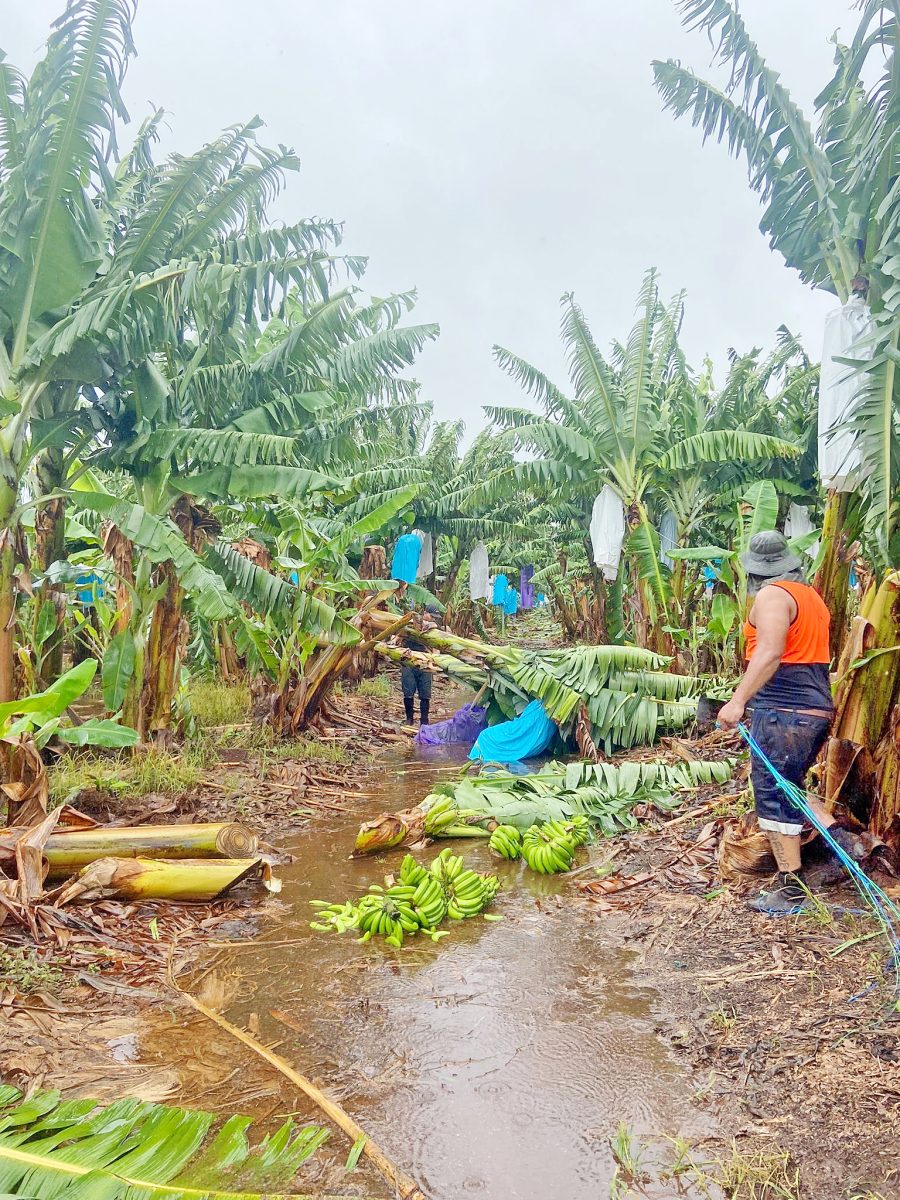
The Inderbitzin family at Swiss Farms lost some banana crops but fared better than they expected when TC Jasper crossed nearby.
Lakeland banana grower Peter Inderbitzin of Swiss Farms said his farms got through the big wet “quite OK” and suffered only a 10 per cent loss in a 100 acre paddock where trees had fallen over.
“We are packing bananas flat out and our trucks will be going through Mount Garnet to the south,” he said.
“Our mushrooms are also going on the trucks so we are going all right. I’m not aware of any cattle losses and we had them fed up well before the rain, but there are lots of dead wallabies everywhere and I don’t know what killed them.”
FUNDING SUPPORT
The state and federal governments have announced funding assistance to help those on the land who have been impacted by Jasper.
Freight subsidies are being made available to primary producers in some of the hardest hit areas to alleviate the costs of moving stock and operating materials.
Disaster Assistance and Essential Working Capital Loans are also now available to affected primary producers, small businesses and not-for-profits to assist with the repair and recovery of essential equipment, and for loss of income.
Assistance is being provided through the joint Commonwealth-state Disaster Recovery Funding Arrangements (DRFA).
This is in addition to the personal hardship grants and other assistance, with 10 local government areas now receiving DRFA support in response to Jasper.
Contact: QRIDA on 1800 623 946 or via www.qrida.qld.gov.au
Contact: DAF on 13 25 23 or via www.daf.qld.gov.au
More information can be found at www.disasterassist.gov.au


